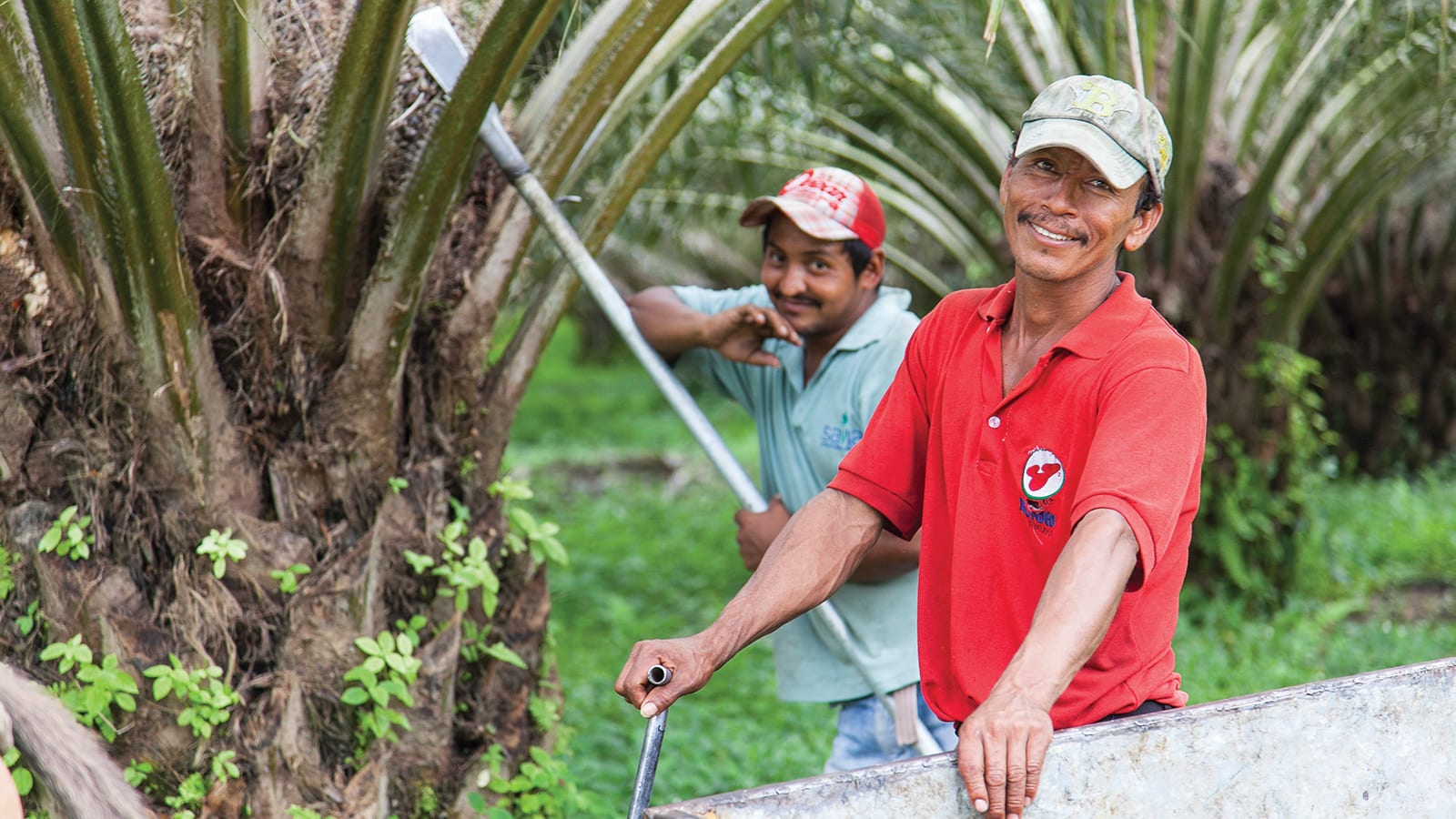Highlighting Palm Done Right
This article was originally published in September 2018

Palm oil can be grown sustainably and ethically. This month we showcase the mission-based movement, Palm Done Right — bringing together manufacturers, retailers and consumers to change how palm oil is produced.
September is Palm Done Right month and we’re excited to highlight the Palm Done Right initiative and some producers who are using Palm Done Right in their products.
Palm is a tropical oil that comes from the fruit of the African oil palm, Elaesis Guineensis, one of two main fruit-bearing tropical palm species. Palm oil is a saturated fat that can be used in a multitude of ways. It adds stability, emulsification, and a smooth mouthfeel and texture to products, without trans fats.
Palm oil today is in roughly 50 percent of U.S. consumer products. Found not only in foods from crackers and ketchup, palm oil is also in soaps and body lotions, cosmetics, household cleaners, dish detergents and even animal feed. Demand for palm oil has soared since the Food and Drug Administration required food labels to list trans fats content (usually from hydrogenated fats) in 2006. Palm oil is a perfect substitute for hydrogenated fats because it’s shelf stable at room temperature and isn’t inherently unhealthy.
Unfortunately, palm oil’s promotion has prompted massive clear-cutting of tropical forests, especially in Indonesia and Malaysia, to plant palm plantations. According to the World Wildlife Fund, the equivalent of 300 football fields is cleared every hour to make way for palm plantations — releasing greenhouse gases, driving already-threatened animal species toward extinction, and forcing out or burning out indigenous communities. Draining the peat swamps and processing palm also produces methane gas, and the palm oil industry is among the most notorious for forced and child labor.
To address these issues, the Natural Habitats Group created Palm Done Right, an educational platform determined to produce a better palm oil with more ethical production. In fact, done right, palm oil could be one of the most sustainable oils on the planet. Palm Done Right presents the first fully integrated, 100 percent organic supply chain in the palm oil industry.
Palm Done Right requires fair labor certification, organic certification, Non-GMO Project Verification, and has the highest level of certification — Identity Preserved — offered by the Roundtable for Sustainable Palm Oil (RSPO). It prohibits clear-cutting, burning forests, planting in virgin or second-growth rain forests, and human trafficking and slavery. This combination of ethical and ecological production practices helps to preserve the environment, native species and native communities.
Palm Done Right palm oil from small farms in Ecuador and Sierra Leone goes “beyond organic” by encouraging multi-cropping, organic matter and soil inputs to enhance carbon sequestration and biological diversity. It combines experience and wisdom from indigenous cultures with the technical know-how of professional agronomists to empower farmers with the knowledge, support and resources they need to grow organically.
Palm Done Right integrity is controlled through its 100 percent vertically-integrated supply chain, from farm to consumer. Palm Done Right partners with farmers, agronomists, retailers, and manufacturers, working with companies who are committed to a fair, equitable and organic supply chain.
Learn more about the positive benefits of sustainably sourced palm oil at www.palmdoneright.com.
